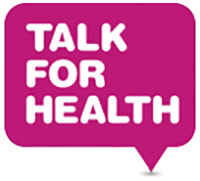In UK-wide research on mental wellbeing and social inclusion, leading UK academics find Talk for Health a particularly effective wellbeing intervention.
Key findings from the report were:
- Social connectedness is the key to wellbeing – more so than social status or life circumstances.
- Creating bonds between diverse people in the community can have a more far reaching impact on wellbeing than targeting troubled individuals
- Talk for Health is a particularly effective intervention in this respect
As part of the research, Talk for Health was selected as one of seven community interventions thought likely to enhance wellbeing. Each intervention was assessed using a range of measures.
Findings on Talk for Health were:
- Participants scored particularly well for increased wellbeing, ‘feeling part of a community’, and empowerment
- Those who started out with low wellbeing returned to ‘normal’ levels
- Participants continued to connect, and wellbeing impacts lasted, after the programme ended
The authors comment: “What was notable was the extent to which the participants had bonded and formed a supportive emotional community between themselves.”
The authors conclude that interventions such as Talk for Health that work with small groups to build strong relationships have very significant impacts on wellbeing.
They recommend that Health and Wellbeing Boards and Clinical Commissioning Groups (CCGs) should set aside funding for such interventions as they can be expected to improve wellbeing, build resilient communities, and create savings in health and welfare expenditure.
The Royal Society of Arts report Community Capital: The Value of Connected Communities was published in October 2015, edited by Matthew Parsfield, with Professor David Morris, Dr Manjit Bola, Dr Martin Knapp, A-La Park, Maximilian Yoshioka and Gaia Marcus.


social connection and talk for health is the best for well being.